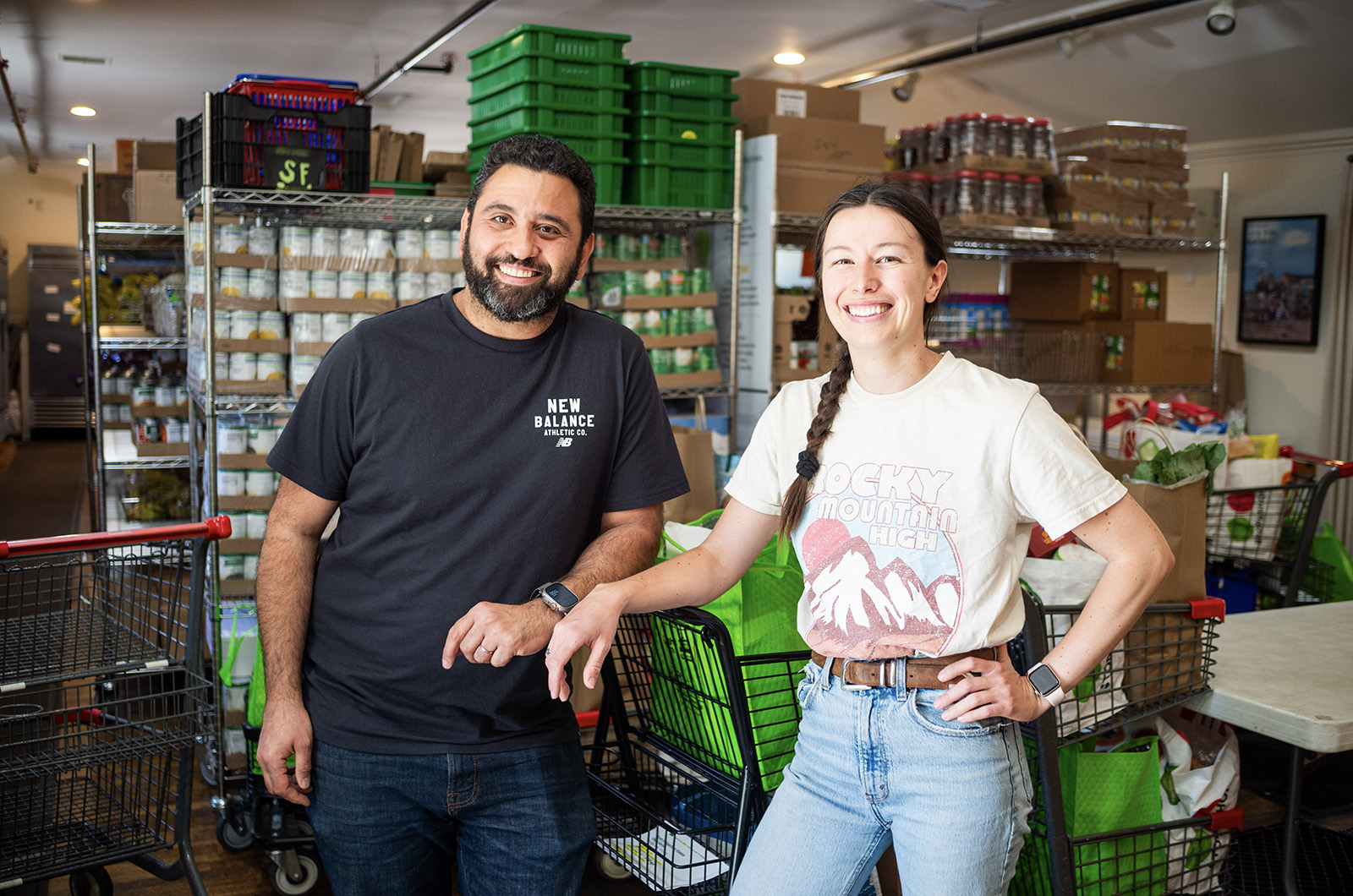Food insecurity, once a seasonal issue as Islanders tried to get through the winter when jobs are traditionally scarce, continues to climb, creating what officials say is an acute year-round crisis.
The Covid-19 pandemic deepened the plight of an already-vulnerable community, but with work shutdowns, rising costs and a tighter-than-ever housing market, the issue now affects a larger portion of the Vineyard population.
“Covid exacerbated everybody’s financial problems. People used up their savings,” said Rebecca Haag, executive director of Island Grown Initiative, the largest of several Vineyard organizations working to combat hunger. “I think we’re seeing some stabilization at this level, but it’s about twice what it used to be.”
The Island Food Pantry, which at the beginning of 2020 served more than 1,000 people in a month for the first time since its 1981 founding, has seen its client base more than double over the past three years. Now part of Island Grown Initiative, the food pantry currently sees some 2,100 monthly clients and has a registration list of 4,200, Ms. Haag said.
The increased need, she and other food equity activists told the Gazette this week, is directly related to the Island’s lack of affordable housing.
“It’s outrageous . . . I have numerous stories of people who have said, literally, when their renewal came up on the rent, it was going to double,” Ms. Haag said.
But the need for food was already critical for many Islanders — families, seniors, shut-ins and the ill — before the pandemic made things worse, said Marjorie Peirce, longtime meal coordinator for the First Congregational Church of West Tisbury.
“It’s not just Covid that has created this situation. Housing is the bottom line,” confirmed Ms. Peirce, who estimated the church sends out 130 to 140 meals to community members each week during the winter, not including the daily suppers and breakfasts provided during the off-season by the church for the Harbor Homes homeless shelter.
Other Island groups that distribute food include Good Shepherd Parish and the Vineyard Committee on Hunger, both of which have been active for many years, while town libraries and the Boys and Girls Club in Edgartown have added drop-in pantries.
With Island rents averaging 30 per cent above the state median while income lags at 27 per cent below, about a fifth of residents are paying more than half their incomes in housing costs, according to an Island Grown report. That financial burden leaves Islanders with less money to cover the rest of their needs, even when they’re gainfully employed, Ms. Haag said.
“They have to buy gas. They have to pay rent [and] pay utilities. The one place that people can get some assistance is in the food arena,” she said, adding that most Islanders rely on aid for only part of their food supply.
“We see a lot of people coming at the end of the month,” she said.
“We’re also seeing professional workers — nurses, social workers, teachers . . . people who just can’t make it from paycheck to paycheck, coming in to make sure they have food for their families and themselves,” she added. “These are working people, working families. They’re contributing to the Island. All of us survive here because we have this kind of labor.”
And while the need for food assistance used to drop off as summer jobs picked up, that decline now is offset by seasonal workers arriving with empty pockets and up to two weeks to wait for their first pay check on a very costly Island.
At The Anchors in Edgartown, the Vineyard’s only senior center with its own commercial kitchen and chef, director Lyndsay Famariss has welcomed a number of working-age adults, primarily newcomers from Jamaica, who drop by for groceries from the center’s community cupboard.
“They have shared with us how hard it is for them to make ends meet on MV, and they have been shocked at the price of food in particular,” Ms. Famariss wrote in a recent report for the Vineyard’s food equity network, a coalition of Island organizations formed in 2016.
Ms. Haag said Island Grown Initiative had hoped for a post-pandemic decline in need, but that hasn’t materialized. To meet the continuing demand, the organization recently purchased a warehouse on Dukes County avenue in Oak Bluffs. The new building is large enough to house the food pantry, which currently shares space at the Portuguese American Club on Vineyard avenue, as well as much-needed storage, Ms. Haag said. The organization plans to relocate the food pantry in 2024.
The ability to store three to four weeks’ worth of groceries and prepared meals will enable Island Grown to keep feeding people during storms and other emergencies that may disrupt deliveries from the mainland, Ms. Haag said. The pantry itself is likely to change its distribution process, adding advance ordering and more pick-up spots around the Island, to reduce lines and crowding.
Another Island Grown program, introduced in 2017, provides free community lunches on weekdays every summer. From June 26 through August 18, the freshly-prepared meals will be available for pick-up at the Aquinnah, West Tisbury, Vineyard Haven, Oak Bluffs and Edgartown libraries, as well as through summer school programs, the Family Center in Vineyard Haven, the YMCA camp and the Martha’s Vineyard Community Service day care.
The Mobile Market, a truck-based produce shop, returns on July 5, making weekly visits to West Tisbury, Oak Bluffs and Vineyard Haven.
And the Island Grown gleaning program is expanding this summer to offer team gleaning for families, clubs and service groups. The produce gleaned from local farms and gardens is cooked into soups and other meals at the former Kitchen Porch catering facility in Edgartown, which Island Grown purchased late last year.
“We’re probably going to produce close to 80,000 meals this year,” Ms. Haag said.
For more information about Island food equity programs, visit igimv.org and firststopmv.org.








Comments (10)
Comments
Comment policy »